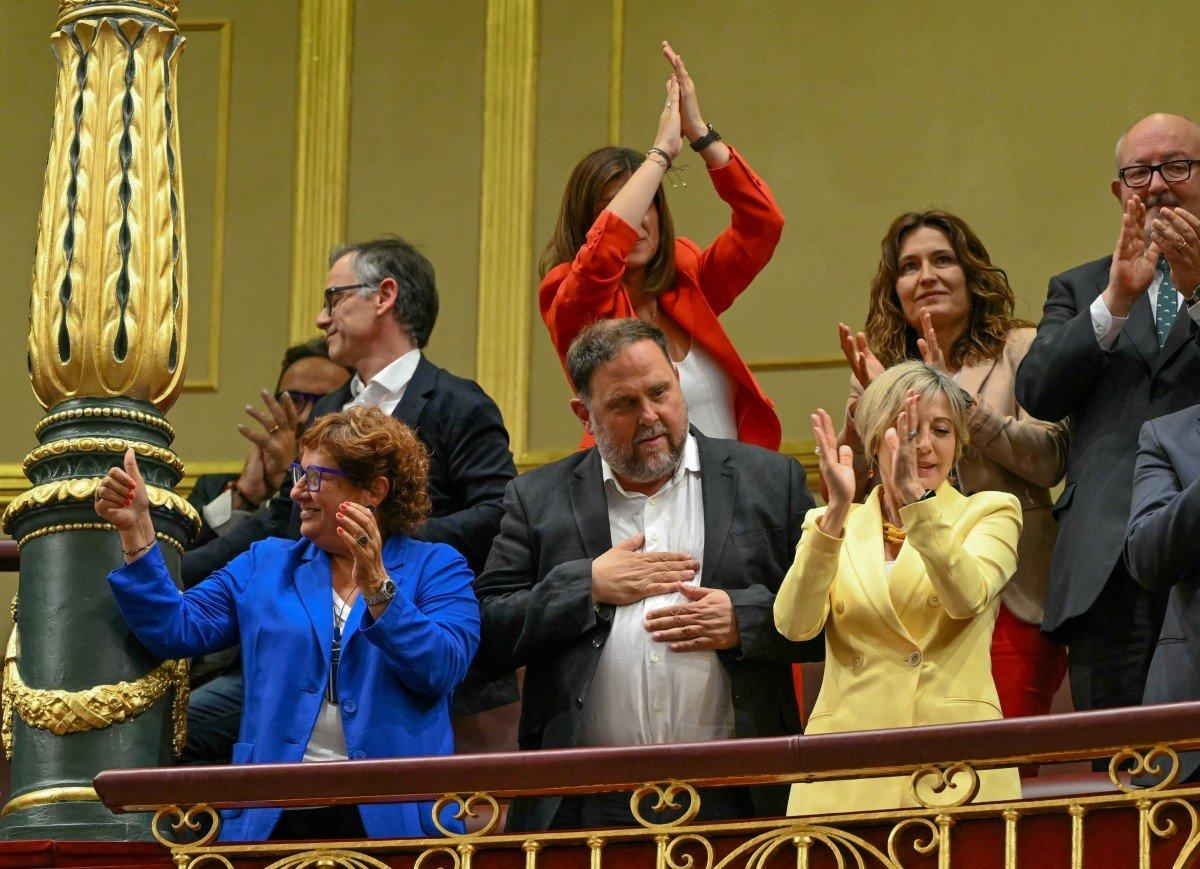Spain's contested Catalan amnesty bill comes into force

After months of legal rigmarole, the controversial amnesty law for Catalan separatists involved in a botched 2017 secession bid came into effect on Tuesday after being published in the state bulletin (BOE), with judges now charged to apply the measure.
The law, which was approved by parliament on May 30th and is expected to affect around 400 people, came into force after it was published in Spain's official gazette.
The most high-profile and controversial beneficiary is Carles Puigdemont.
The former president of Catalonia led the 2017 secession drive in the wealthy northeastern region of Spain before going into self-exile in Belgium, where he has resided ever since.
An amnesty would allow him to return to Spain.
Judges will have two months in which to apply it on a case by case basis.
Many judges are opposed to the amnesty and they may refer it to Spain's Constitutional Court or the European Court of Justice.
"A new battle begins," Jordi Turull, secretary general of Puigdemont's hardline separatist JxCAT party, said on X.
He predicted "the application of the law" by some judges "will not be easy but sooner or later we will succeed".
Catalonia's other major separatist party, the more moderate ERC, said that around 30 of its members had applied for amnesty.
They include Oriol Junqueras, who was sentenced to 13 years in prison for his role in the secession attempt before he was pardoned by Socialist Prime Minister Pedro Sánchez's government in 2021.
The battle over the amnesty law has dominated Spanish politics since the general election in July 2023. Right-wing critics have staged regular street protests against it.
Sánchez, who had opposed the law in the past, agreed to grant the amnesty in exchange for obtaining support from Catalan separatist parties in parliament.
That support was essential for him to win reappointment for another four-year term in office after the inconclusive general election.
Under Puigdemont's watch, the regional government of Catalonia pressed ahead with a referendum on independence on October 1, 2017, despite the move having been banned by the courts.
Nearly a month later, Catalonia's regional parliament declared independence, prompting Spain's central government to impose direct rule on the region.
The events triggered the country's biggest political crisis since the advent of democracy following the death of dictator General Francisco Franco in 1975.
Comments
See Also
The law, which was approved by parliament on May 30th and is expected to affect around 400 people, came into force after it was published in Spain's official gazette.
The most high-profile and controversial beneficiary is Carles Puigdemont.
The former president of Catalonia led the 2017 secession drive in the wealthy northeastern region of Spain before going into self-exile in Belgium, where he has resided ever since.
An amnesty would allow him to return to Spain.
Judges will have two months in which to apply it on a case by case basis.
Many judges are opposed to the amnesty and they may refer it to Spain's Constitutional Court or the European Court of Justice.
"A new battle begins," Jordi Turull, secretary general of Puigdemont's hardline separatist JxCAT party, said on X.
He predicted "the application of the law" by some judges "will not be easy but sooner or later we will succeed".
Catalonia's other major separatist party, the more moderate ERC, said that around 30 of its members had applied for amnesty.
They include Oriol Junqueras, who was sentenced to 13 years in prison for his role in the secession attempt before he was pardoned by Socialist Prime Minister Pedro Sánchez's government in 2021.
The battle over the amnesty law has dominated Spanish politics since the general election in July 2023. Right-wing critics have staged regular street protests against it.
Sánchez, who had opposed the law in the past, agreed to grant the amnesty in exchange for obtaining support from Catalan separatist parties in parliament.
That support was essential for him to win reappointment for another four-year term in office after the inconclusive general election.
Under Puigdemont's watch, the regional government of Catalonia pressed ahead with a referendum on independence on October 1, 2017, despite the move having been banned by the courts.
Nearly a month later, Catalonia's regional parliament declared independence, prompting Spain's central government to impose direct rule on the region.
The events triggered the country's biggest political crisis since the advent of democracy following the death of dictator General Francisco Franco in 1975.
Join the conversation in our comments section below. Share your own views and experience and if you have a question or suggestion for our journalists then email us at [email protected].
Please keep comments civil, constructive and on topic – and make sure to read our terms of use before getting involved.
Please log in here to leave a comment.